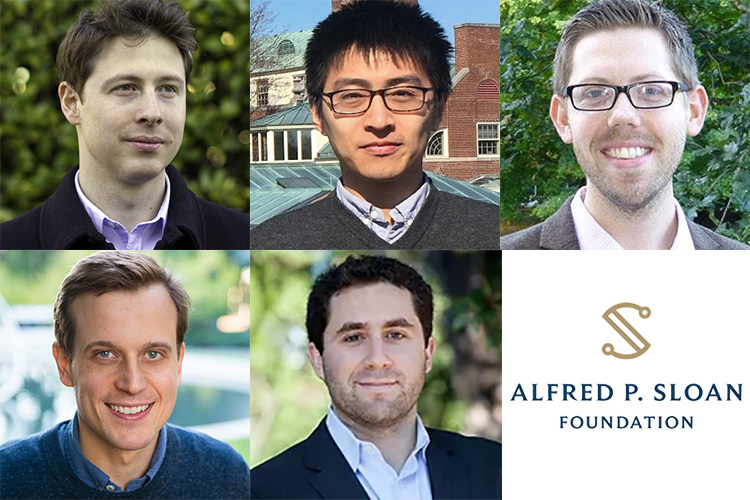Five young scholars named Sloan Research Fellows

Five UC Berkeley assistant professors have been awarded 2021 Sloan Research Fellowships, which are one of the most competitive and prestigious awards available to early career researchers.
The five are among 128 fellows announced today — a cohort that the Alfred P. Sloan Foundation refers to as “the brightest young scientists across the U.S. and Canada.” The two-year fellowships are awarded annually in recognition of distinguished performance and the awardees’ unique potential to make substantial contributions to their fields.
The new fellows are Alessandro Chiesa of electrical engineering and computer science; Liang Dai of physics; David Limmer of chemistry; and Benjamin Schoefer and Dmitry Taubinsky of economics. Each will receive $75,000 to spend on research.
Since the first Sloan Research Fellowships were awarded in 1955, 287 faculty from UC Berkeley have received the fellowships.
Meet UC Berkeley’s new Sloan Research Fellows:
Chiesa conducts research in theoretical computer science and computer security, including theoretical and applied cryptography, complexity theory, privacy-enhancing technologies and quantum information.
Dai, a cosmologist and astrophysicist, researches cosmic-scale structure and the evolution of the universe, with a focus on dark matter and its observational signatures through gravitational lensing, and astrophysical gravitational wave signals.
Limmer, the Chevron Chair in Chemistry, develops tools, perspectives and theories that place nonequilibrium chemical physics at the same level of understanding as those of equilibrium ideas, in order to tackle outstanding questions in the physical sciences.
Schoefer focuses on macroeconomics, labor economics and corporate finance, with recent papers on unemployment, marginal jobs and outsourced labor.
Taubinsky works in the area of psychology and economics — behavioral economics — and in public economics, with a current focus on sugar-sweetened beverage taxes, tax salience, heuristic perceptions of incentives and welfare estimation in credit markets.
The Alfred P. Sloan Foundation, which was established in 1934, seeks, through the fellowship program, to stimulate fundamental research by early-career scientists and scholars of outstanding promise.
